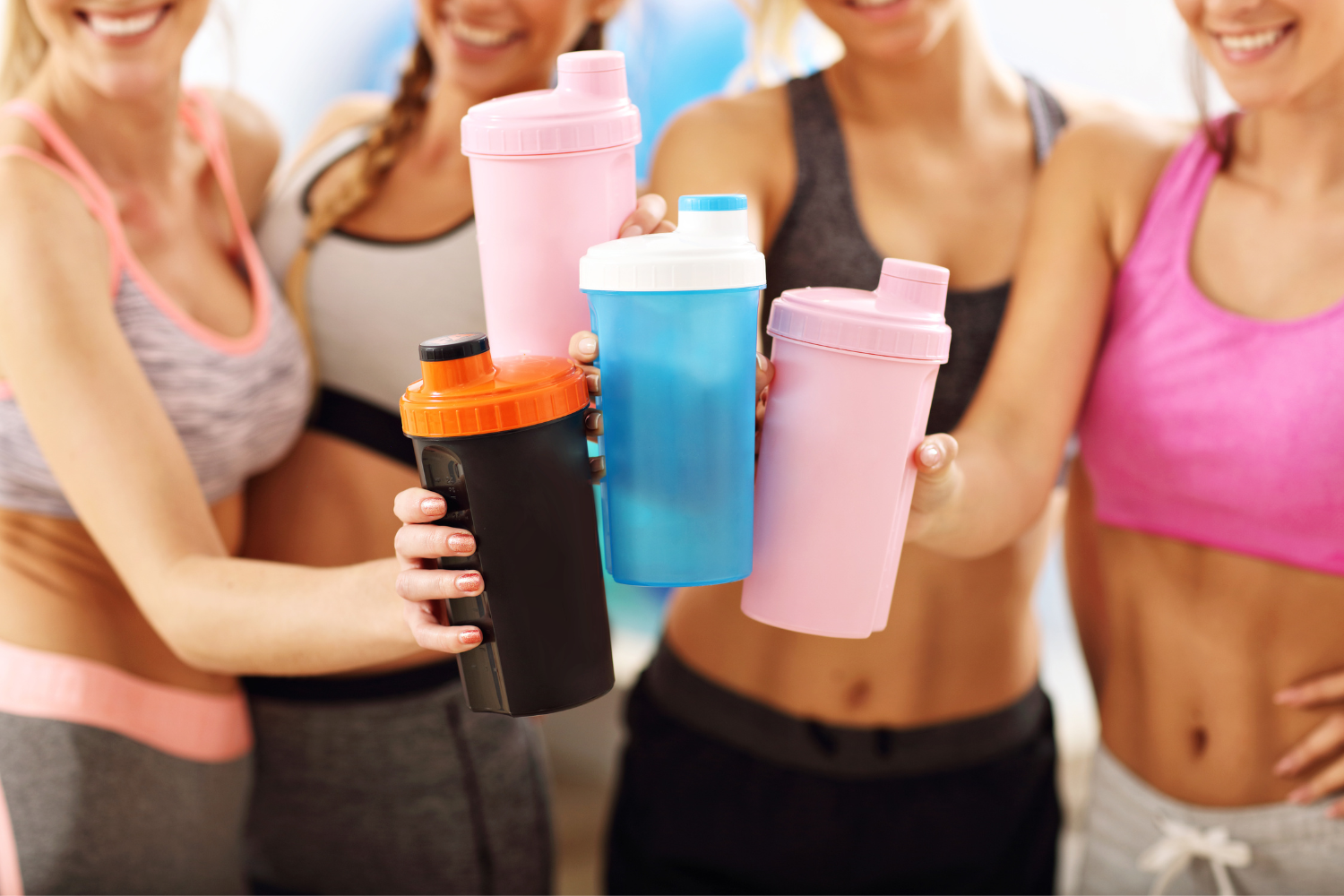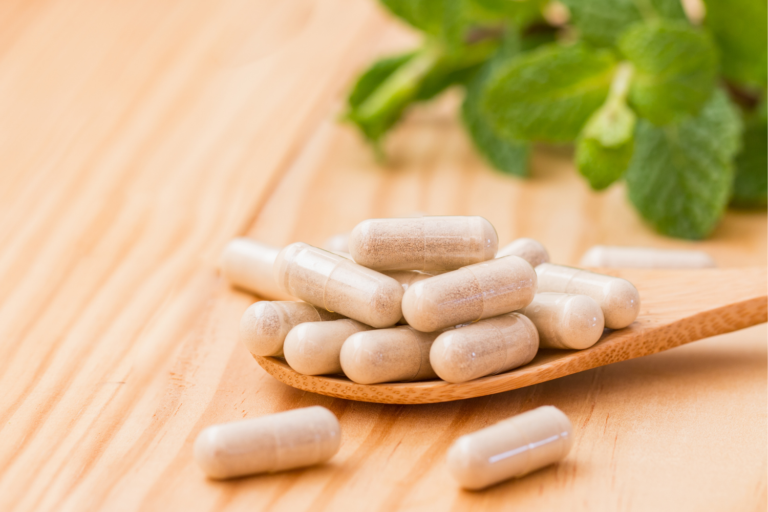Fitness supplements and recovery products are a fast-growing segment in the health and wellness industry, driven by increasing demand from athletes, fitness enthusiasts, and active individuals looking to improve exercise performance, support muscle growth, and enhance recovery.
These products allow wellness brands to meet consumer needs while expanding their product lines with protein supplements, amino acids, and other effective supplements backed by scientific evidence. This guide explores fitness and recovery supplements, key ingredients like whey protein and creatine, and essential factors for launching a successful product line in the competitive sports nutrition market.
What Are Fitness and Recovery Supplements?
Fitness supplements and recovery products help improve exercise performance, endurance, and muscle recovery. They include protein supplements, amino acids, and other scientifically backed formulas designed to support muscle protein synthesis, muscle strength, and body composition. These supplements benefit athletes, fitness enthusiasts, and active individuals by enhancing energy levels, promoting lean mass, and reducing muscle soreness.
Wellness brands can attract a broad customer base by offering effective supplements for different fitness goals. Consumers look for products that improve exercise performance, aid in fat loss, and support skeletal muscle recovery. Fitness supplements help reduce body weight fluctuations, replenish essential amino acids, and speed up post-workout recovery, making them valuable additions to a health and wellness product line.
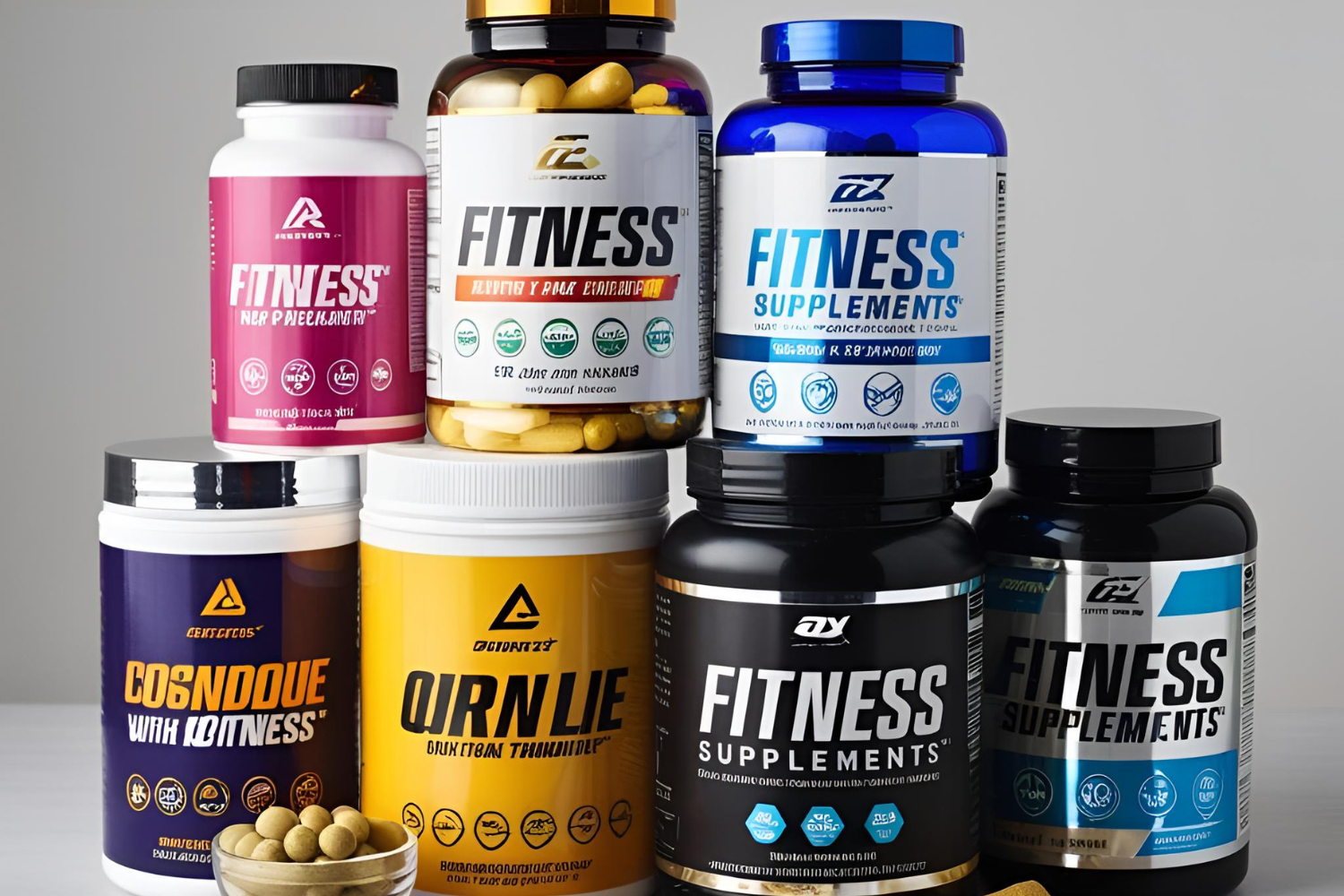
Types of Fitness and Recovery Products Your Brand Can Offer
A successful supplement line includes products for every stage of a fitness routine, from pre-workout preparation to post-exercise recovery. Offering a range of options ensures consumers can find solutions that match their workout intensity, training goals, and recovery needs.
Pre-Workout Supplements
Pre-workout supplements boost energy, focus, and endurance before exercise. They often contain caffeine, nitric oxide boosters, and beta-alanine supplementation to improve exercise performance and delay fatigue. Popular products include energy powders and stimulant-based blends designed to maximize workout intensity.
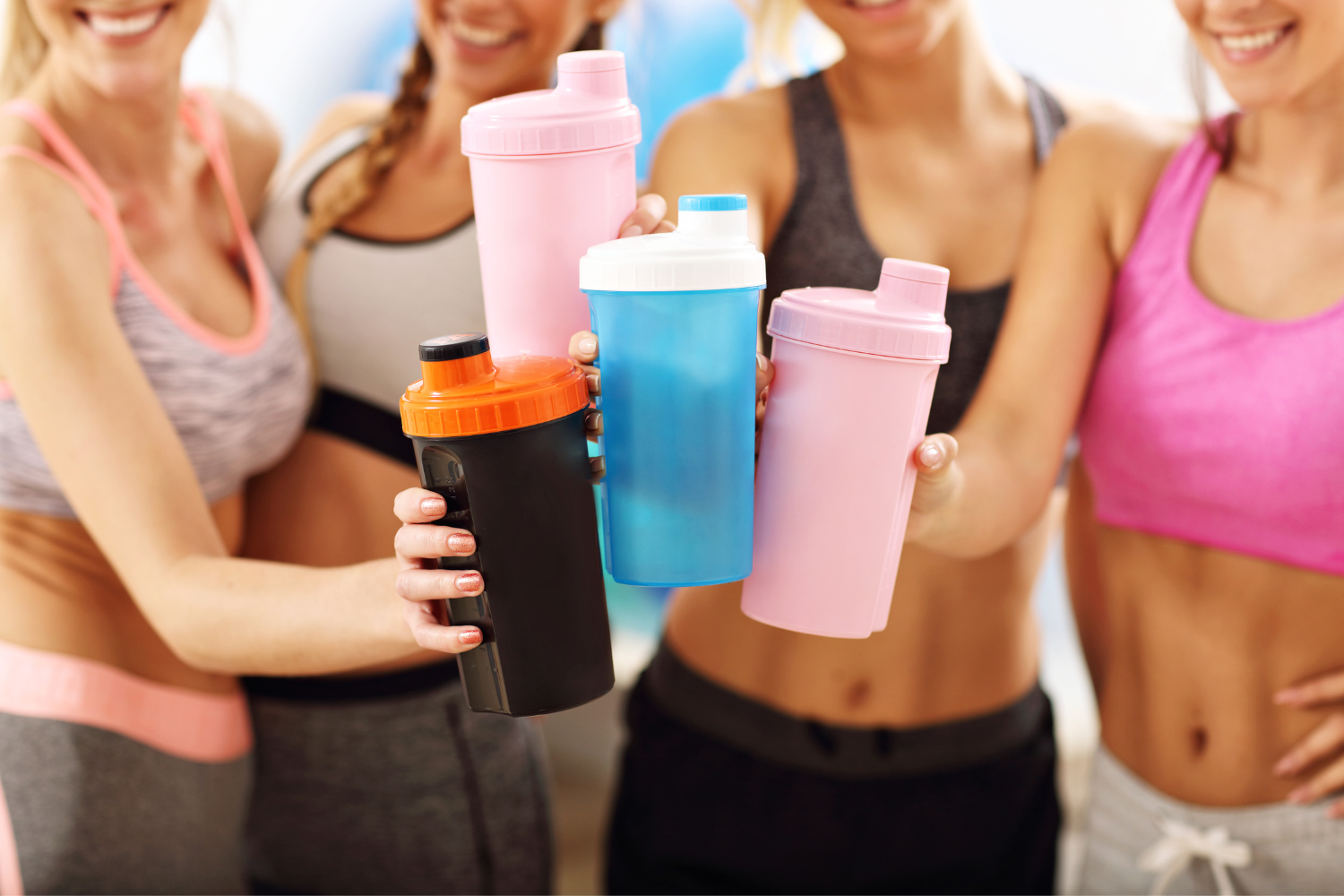
Intra-Workout Supplements
These supplements help sustain energy levels and reduce muscle breakdown during workouts. Branched-chain amino acids (BCAAs) and electrolyte drinks provide hydration and essential nutrients that support muscle protein synthesis, endurance performance, and lean body mass maintenance.
Post-Workout Recovery
Post-workout products focus on muscle repair, replenishment, and reducing soreness. Protein powders, glutamine, and amino acid blends support muscle growth and recovery, helping individuals maintain muscle size and improve body composition after resistance training or high-intensity interval training.
Hydration and Electrolyte Replenishers
Hydration is essential for endurance performance and muscle recovery. Electrolyte tablets, hydration powders, and sports drinks help replenish minerals lost through sweat and support hydration when consumed with adequate water.
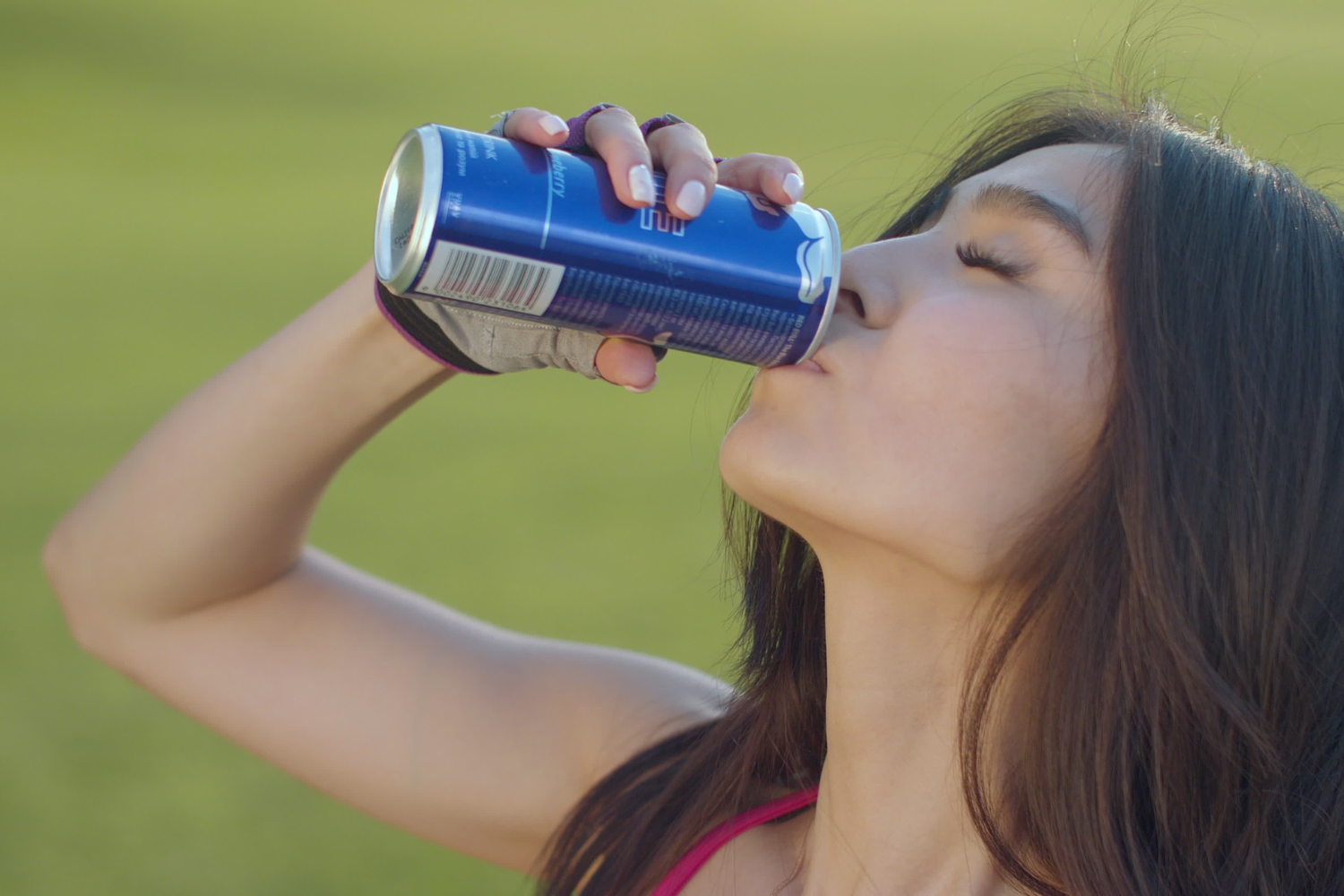
Sleep and Recovery Aids
Rest plays a crucial role in muscle repair and gaining muscle mass. Magnesium, melatonin, and valerian root are commonly included in sleep and recovery products, as they have been studied for their potential effects on relaxation and sleep patterns, allowing the body to recover more effectively after workouts.
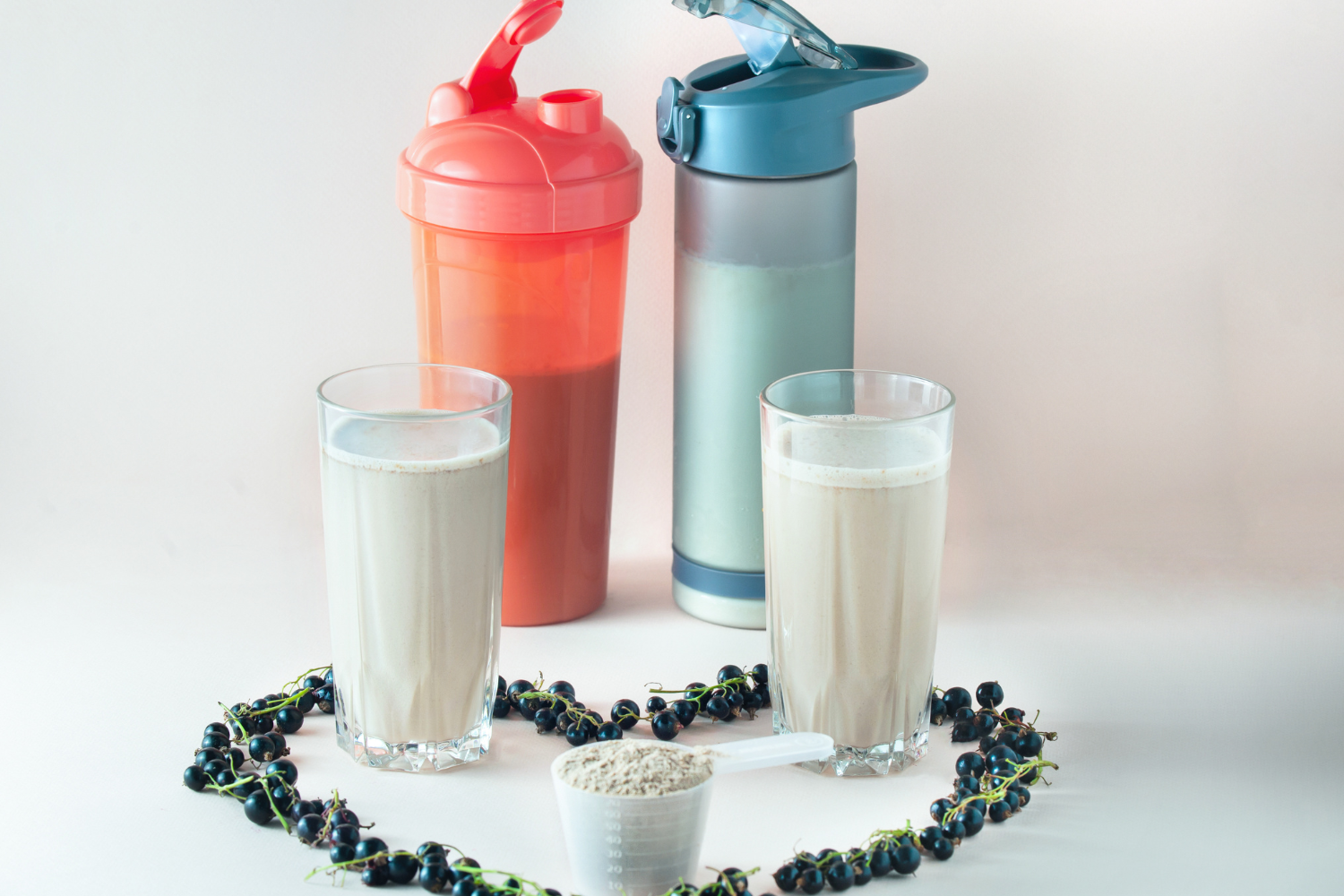
Key Ingredients to Include in Fitness and Recovery Supplements
The effectiveness of fitness supplements depends on high-quality ingredients that support muscle strength, endurance, and recovery. Choosing scientifically backed nutrients helps brands create products that appeal to athletes, fitness enthusiasts, and those looking to improve exercise performance.
Protein (Whey, Casein, Plant-Based)
Protein supplements play a crucial role in muscle repair and muscle protein synthesis. Whey protein is a fast-digesting option ideal for post-workout recovery, while casein protein provides a slow-release effect, making it beneficial for overnight muscle repair. Plant-based options like soy protein and pea protein cater to consumers looking for dairy-free alternatives while still supporting lean body mass and muscle growth.
BCAAs and EAAs (Essential Amino Acids)
Branched-chain amino acids (BCAAs) and essential amino acids (EAAs) are often used in fitness supplements and have been studied for their potential role in muscle protein synthesis and recovery. The three amino acids in BCAAs—leucine, isoleucine, and valine—play a key role in muscle protein synthesis, while EAAs provide a complete amino acid profile necessary for optimal muscle repair and endurance performance.
Creatine Monohydrate
Creatine supplementation is widely used to improve muscle strength and power, particularly in high-intensity activities like weightlifting and sprinting. Studies, including a systematic review of creatine research, show that it helps increase muscle mass, enhance body composition, and support high-intensity interval training by boosting energy production in skeletal muscle.
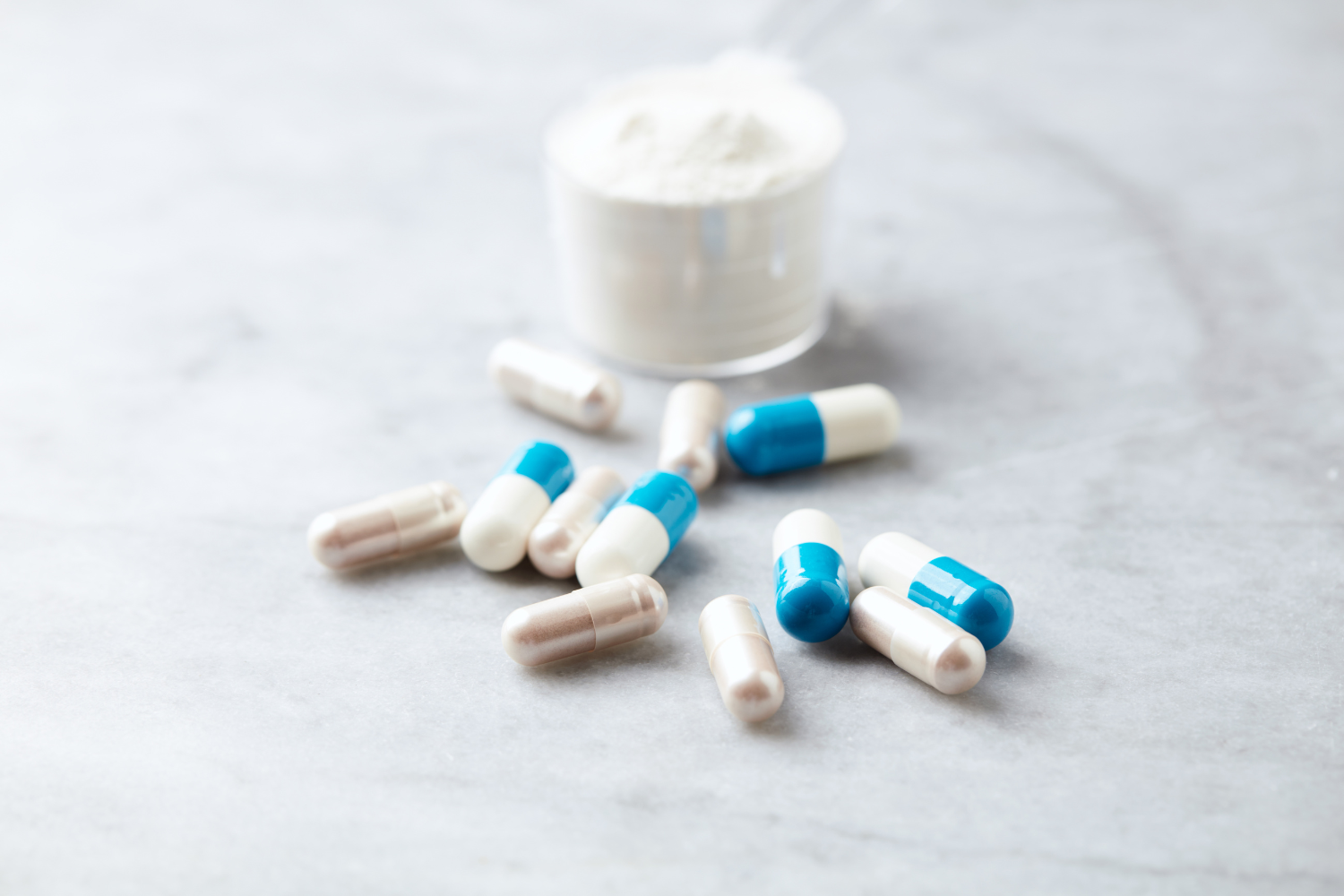
L-Glutamine
L-glutamine is a conditionally essential amino acid that may support immune function and muscle recovery, though research on its effectiveness is mixed. It helps reduce muscle soreness, supports lean mass preservation, and aids post-exercise recovery. Research suggests that L-glutamine may be particularly beneficial for endurance athletes and individuals engaged in resistance training.
Electrolytes (Magnesium, Potassium, Sodium)
Electrolytes are vital for hydration, muscle function, and endurance performance. Magnesium, potassium, and sodium help prevent muscle cramps, fatigue, and dehydration, making them essential in hydration powders and electrolyte drinks for fitness enthusiasts and athletes.
Anti-Inflammatory Ingredients (Turmeric, Tart Cherry)
Turmeric and tart cherry extract contain compounds that have been studied for their potential role in supporting post-exercise recovery. These ingredients support faster recovery, allowing individuals to maintain consistent training intensity and improve exercise performance.
Adaptogens (Ashwagandha, Rhodiola)
Adaptogens help the body manage stress, improve endurance, and aid in post-workout recovery. Ashwagandha has been studied for its ability to enhance muscle strength and reduce cortisol levels, while Rhodiola supports physical activity by reducing fatigue and promoting stamina.
Formulating Your Fitness and Recovery Supplement Line
A well-formulated supplement line must balance effectiveness, safety, and market appeal. Selecting the right ingredients, dosages, and product formats helps brands create high-quality offerings that meet consumer expectations.
Identifying Your Brand’s Unique Value Proposition
Defining what sets a supplement line apart is essential for standing out in a competitive market. Brands should focus on clean ingredients, plant-based options, clinically studied formulas, or unique blends tailored to specific fitness goals. A strong value proposition helps attract fitness enthusiasts looking for targeted solutions, whether for weight loss, gaining muscle, or endurance performance.
Choosing High-Quality Ingredients
Using high-quality, science-backed ingredients ensures product safety and effectiveness. Sourcing from reputable suppliers and following sports nutrition position stand guidelines help maintain consistency and build trust with consumers. Brands should prioritize third-party testing and certifications to verify ingredient purity and compliance with regulatory standards.
Dosage and Form Considerations
Selecting the right product format and dosage ensures optimal results and consumer convenience. Research-backed dosing improves efficacy while offering multiple formats that cater to different preferences.
Common supplement forms:
- Powders: Ideal for protein supplements, pre-workout formulas, and hydration drinks.
- Capsules/Tablets: Convenient for amino acids, adaptogens, and vitamins supplements.
- Ready-to-Drink (RTD) Beverages: Pre-formulated recovery drinks and electrolyte solutions.
- Gummies: Popular for sleep aids and hydration support.
Transparency and Clean Labeling
Consumers value transparency in dietary supplements. Clearly listing ingredients, providing detailed supplement facts, and using minimal additives increase trust and credibility. Highlighting research-based benefits, third-party testing, and free shipping incentives on a website can further enhance brand reputation and encourage repeat purchases.
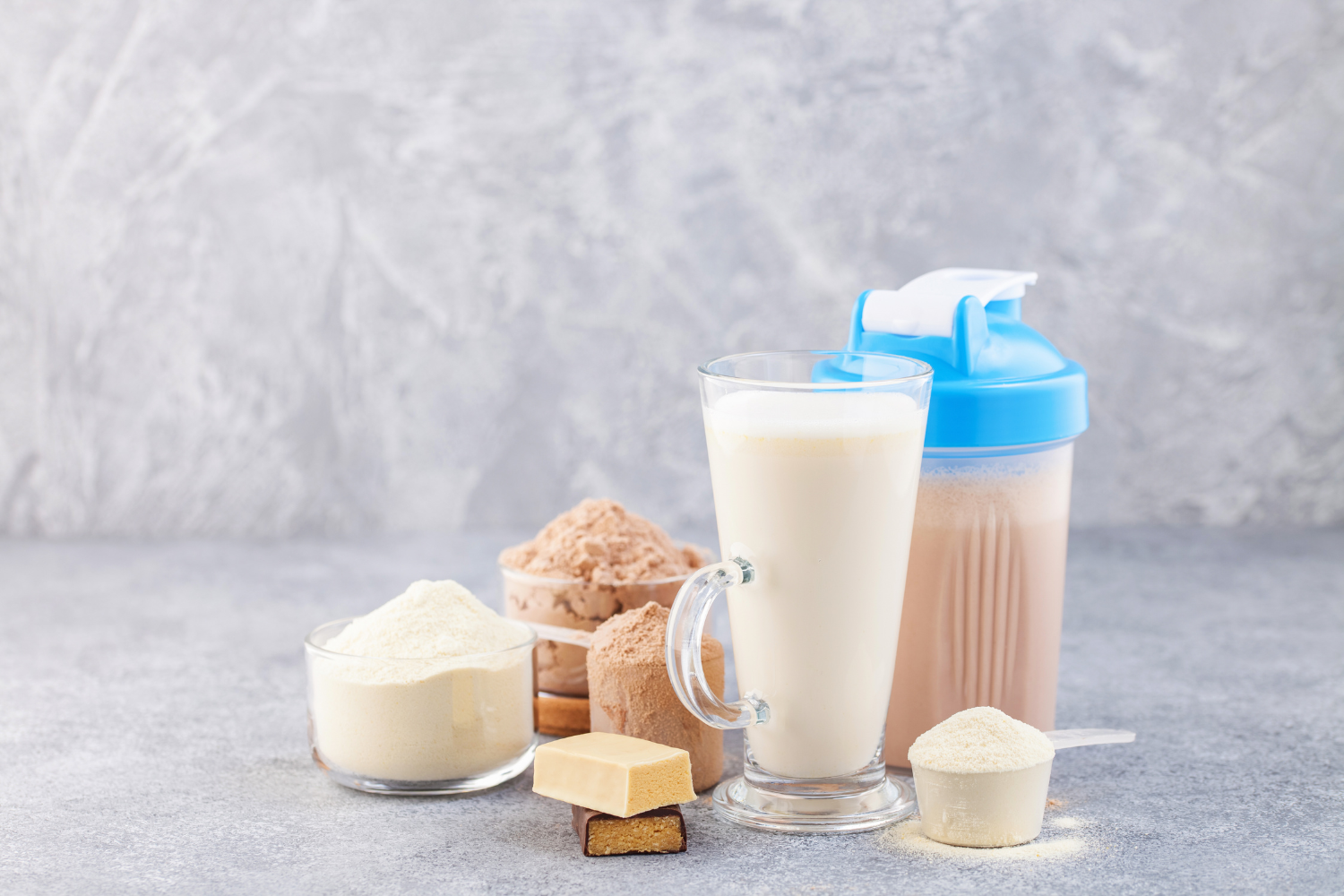
Understanding the Consumer: Targeting Fitness and Recovery Users
Fitness supplements, from professional athletes to casual gym-goers, appeal to a broad audience. Understanding consumer needs helps brands develop products that align with specific fitness goals, lifestyle preferences, and health concerns.
Market Segments to Consider
Consumers use fitness and recovery supplements for various reasons, including muscle growth, endurance, and fat loss. Identifying key demographics allows brands to tailor marketing and product offerings effectively.
Key consumer segments include:
- Gym-Goers: Individuals focused on resistance training, weight training, and muscle size improvement.
- Athletes: Competitive sports participants looking to improve exercise performance and recovery.
- Outdoor Enthusiasts: Runners, cyclists, and hikers who need endurance support and hydration.
- Busy Professionals: Those seeking convenient dietary supplements for energy, stress management, and workout recovery.
- Older Adults: Consumers aiming to maintain lean mass, skeletal muscle health, and body composition.
Top Consumer Concerns
Consumers prioritize product efficacy, ingredient safety, and transparency when choosing supplements. Many look for scientific evidence supporting claims about muscle strength, endurance performance, and body composition improvements. Concerns about potential side effects, artificial additives, and misleading marketing can influence purchasing decisions. Clear information on ingredient purity, dosage recommendations, and research-backed benefits helps address these concerns and build consumer trust.
Educating Your Audience
Educating consumers about fitness supplements increases confidence in product effectiveness and encourages long-term use. Brands should provide guidance on supplement benefits, safe usage, and how different ingredients support muscle protein synthesis, body weight management, and physical activity. Educational content, such as blogs, videos, and expert-backed articles, can help consumers make informed choices, leading to higher satisfaction and brand loyalty.
Marketing Your Fitness and Recovery Supplement Line
A strong marketing strategy positions fitness supplements as essential tools for muscle recovery, endurance, and athletic performance. Effective branding, influencer partnerships, and educational content help reach target consumers and drive sales.
Effective Branding and Positioning
A well-defined brand message sets a supplement line apart from competitors. Positioning products as essential for workout recovery and muscle growth attracts fitness enthusiasts seeking effective supplements.
Branding and positioning tips:
- Highlight scientific backing: Use research and meta-analysis findings to support product claims.
- Focus on clean ingredients: Emphasize transparency, free from artificial additives, and third-party tested products.
- Cater to specific fitness goals: Offer tailored solutions for fat loss, gaining muscle, or endurance performance.
- Leverage packaging and labeling: Use clear, informative labeling that appeals to health-conscious consumers.
Social Proof and Testimonials
Consumer reviews and athlete endorsements help establish credibility in the fitness market. Sharing testimonials from fitness enthusiasts, resistance training athletes, and personal trainers reassures potential buyers about product effectiveness. Featuring before-and-after results, systematic review insights, and case studies on your website can further strengthen trust.
Leveraging Influencers in Fitness and Wellness
Fitness influencers and trainers can help brands connect with their target audience. Partnering with influencers who align with the brand’s values increases visibility and builds consumer trust. Sponsored posts, workout videos, and product reviews from trusted figures encourage potential buyers to integrate supplements into their fitness routines.
Educational Content
Providing valuable educational content enhances brand authority and engagement. Informative blogs, video tutorials, and social media posts on pre-workout nutrition, resistance training benefits, and muscle recovery strategies help consumers make informed decisions. High-quality content improves search engine rankings, driving organic traffic to the brand’s website.

Compliance and Quality Assurance for Fitness Supplements
Ensuring compliance with industry regulations and maintaining high-quality standards is essential for consumer safety and brand credibility. Proper manufacturing practices and certifications help brands gain trust and avoid legal issues.
FDA and GMP Compliance
Fitness supplements must comply with FDA guidelines and Good Manufacturing Practices (GMP) to ensure product safety and accuracy. Proper labeling, ingredient sourcing, and adherence to dietary supplement regulations are critical for maintaining credibility. Brands should work with GMP-certified manufacturers to ensure products meet industry standards.
Third-Party Testing
Third-party testing verifies supplement purity, potency, and safety. Independent lab testing provides unbiased results, ensuring that products meet label claims and do not contain harmful contaminants. Displaying third-party testing results on packaging or a website builds consumer confidence and differentiates the brand from competitors.
Certifications to Consider
Certifications help reinforce a brand’s commitment to quality and safety, and earning trusted certifications makes products more appealing to discerning consumers.
Notable certifications include:
- NSF Certified for Sport: Ensures supplements are free from banned substances.
- Informed-Sport/Informed-Choice: Confirms products are tested for contaminants and performance-enhancing drugs.
- GMP Certification: Verifies adherence to Good Manufacturing Practices.
- USDA Organic: For plant-based and clean-label dietary supplements.
- Non-GMO Project Verified: Appeals to consumers looking for genetically modified organism-free products.

Building a Successful Fitness and Recovery Supplement Brand
Fitness and recovery supplements provide a strong opportunity for health and wellness brands to expand their product offerings and meet the needs of fitness enthusiasts and athletes. Prioritizing high-quality ingredients, transparent labeling, and consumer education helps establish credibility and trust.
The growing demand for effective supplements supporting endurance, muscle recovery, and workout performance presents a profitable market for brands promoting active lifestyles.
Frequently Asked Questions
What are the most effective fitness supplements for recovery?
Protein powders, BCAAs, creatine, and electrolyte replenishment products help improve muscle recovery, reduce soreness, and support overall exercise performance.
How can I ensure my supplements are compliant with regulations?
Work with GMP-certified manufacturers, follow FDA guidelines and invest in third-party testing to meet industry standards and ensure product safety.
What ingredients should I prioritize for my fitness supplement line?
Key ingredients include whey protein, essential amino acids, creatine monohydrate, L-glutamine, beta-alanine, and electrolyte blends to support muscle strength and endurance.
Are fitness and recovery supplements necessary for every wellness brand?
While not essential for every brand, fitness supplements can expand product offerings and attract consumers focused on muscle growth, endurance, and overall wellness.
How do I choose the best product types to start with?
Start with high-demand products like protein powders, pre-workout supplements, and hydration formulas, then expand based on consumer feedback and market trends.
References
- Gwin, J. A., Church, D. D., Wolfe, R. R., Ferrando, A. A., & Pasiakos, S. M. (2020). Muscle Protein Synthesis and Whole-Body Protein Turnover Responses to Ingesting Essential Amino Acids, Intact Protein, and Protein-Containing Mixed Meals with Considerations for Energy Deficit. Nutrients, 12(8), 2457. https://doi.org/10.3390/nu12082457
- Saunders, B., Elliott-Sale, K., Artioli, G. G., Swinton, P. A., Dolan, E., Roschel, H., Sale, C., & Gualano, B. (2017). β-alanine supplementation to improve exercise capacity and performance: a systematic review and meta-analysis. British journal of sports medicine, 51(8), 658–669. https://doi.org/10.1136/bjsports-2016-096396
- Shirreffs, S. M., & Sawka, M. N. (2011). Fluid and electrolyte needs for training, competition, and recovery. Journal of sports sciences, 29 Suppl 1, S39–S46. https://doi.org/10.1080/02640414.2011.614269
- U.S. Food and Drug Administration. (2024). Dietary Supplements. https://www.fda.gov/food/dietary-supplements
- Wu, S. H., Chen, K. L., Hsu, C., Chen, H. C., Chen, J. Y., Yu, S. Y., & Shiu, Y. J. (2022). Creatine Supplementation for Muscle Growth: A Scoping Review of Randomized Clinical Trials from 2012 to 2021. Nutrients, 14(6), 1255. https://doi.org/10.3390/nu14061255
